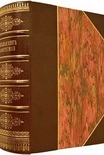Second Place by Rachel Cusk (best free e reader TXT) 📗

- Author: Rachel Cusk
Book online «Second Place by Rachel Cusk (best free e reader TXT) 📗». Author Rachel Cusk
‘Why do you play at being a woman?’ he asked me suddenly, with a slightly idiotic grin.
I didn’t object to being asked that question, because it struck me as correct that it was what I did. What I didn’t like was a joke being made out of it.
‘I don’t know,’ I said. ‘I don’t think I know how to be a woman. I believe that no one ever showed me.’
‘It isn’t a question of showing,’ he said. ‘It’s a question of being permitted.’
‘You said when we first spoke that you couldn’t see me,’ I said. ‘So maybe you’re the one who isn’t permitting.’
‘You always try to force things,’ he said. ‘It’s as if you think nothing would ever happen, unless you made it.’
‘I believe nothing would,’ I said.
‘No one has ever broken your will.’ He took his eyes off me and looked around musingly at the room. ‘Who pays for all this?’ he asked.
‘The house and the land belong to Tony. I have some money of my own.’
‘I can’t imagine your little books make all that much.’
This was the first time, Jeffers, that he had alluded to my own work – if it can be called that. But up until that point his refusal to know anything about me had felt like a refusal to grant my existence, and now I understood it was because he didn’t like the feeling of being compelled by my will. Yet I was convinced that he needed my will, needed it to get over the obstacle in front of him and over to the other side. We needed one another!
‘I came into some money a few years ago,’ I told him. ‘My first husband, Justine’s father, had some shares he once put in my name as a kind of dodge. He forgot that he did it, and then years later, after we were divorced, the value of these shares went through the roof. He tried to get me to sign them back over to him, but the lawyer told me I didn’t have to and that the money was legally mine. So I kept it.’
The light was burning again in L’s eyes.
‘Was it a lot?’ he said.
‘On the scales of justice,’ I said, ‘it more or less equalled what he owed me.’
L gave a kind of hoot.
‘Justice,’ he said. ‘What a quaint notion.’
It had felt more like an ending than a levelling, I told him, the end of an exhausting race. My little books, as he called them, had indeed made hardly any money, partly because they presented themselves to me so infrequently, and only when life had taken an ethical shape by which I had to be thoroughly broken down before I could assume that shape myself in words. I had done every kind of job in between, and lived off nerves and adrenalin, and now the greatest vice I could think of was to do nothing at all.
‘I’ve never had enough fun,’ I said to him. ‘I’ve had other things, but never that. Perhaps it’s as you say, that I force things to happen, and it’s in the nature of fun not to be forced.’
When I said that, what did he do but suddenly spring to his feet and to my very great surprise leap onto the tabletop like a cat!
‘Shall we have fun?’ he said, cavorting there like a blazing-faced devil while I sat dumbfounded and watched him. He shouted my name over and over, stamping his feet on the table. ‘Let’s have some fun, shall we? Let’s have some fun!’
I really can’t recall, Jeffers, how I took my leave of him that day, but I do remember walking back down through the glade with a feeling that was like a wound in my chest, the way a wound is both weight and light, is fresh but fatal. I thought then of what Tony had said about L, and wondered how it was that Tony always seemed to know far more about the way things really were than anyone else.
Kurt announced that he had decided to be a writer. He wished to begin writing a book straight away. He had once heard a writer say that writing with a pen and paper was preferable to any other way, because the muscular movement of the hand was conducive to the formation of sentences. Kurt had decided that he would follow that advice. He asked for a number of pens and two big blocks of plain paper to be bought, the next time





Comments (0)